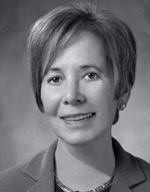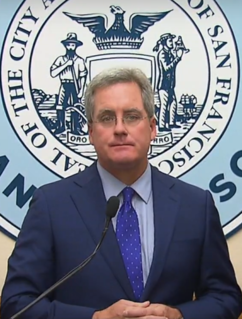Strategic lawsuits against public participation, or strategic litigation against public participation, are lawsuits intended to censor, intimidate, and silence critics by burdening them with the cost of a legal defense until they abandon their criticism or opposition.
Same-sex marriage in California has been legal since June 28, 2013. The U.S. state first issued marriage licenses to same-sex couples on June 16, 2008 as a result of the Supreme Court of California finding in the case of In re Marriage Cases that barring same-sex couples from marriage violated the Constitution of California. The issuance of such licenses was halted from November 5, 2008 through June 27, 2013 due to the passage of Proposition 8—a state constitutional amendment barring same-sex marriages. The granting of same-sex marriages recommenced following the U.S. Supreme Court decision in Hollingsworth v. Perry, which restored the effect of a federal district court ruling that overturned Proposition 8 as unconstitutional.

Josephine "Joyce" Luther Kennard is a Dutch-American judge and former Associate Justice of the Supreme Court of California. Appointed by Governor George Deukmejian in 1989, she was the longest-serving justice sitting on the Court at the time of her 2014 retirement, having been retained by California's voters three times—first to fill the unexpired term in 1990, followed by second and third consecutive twelve-year terms in 1994 and 2006.
POM Wonderful, LLC is a private company which sells an eponymous brand of beverages and fruit extracts. It was founded in 2002 by the billionaire industrial agriculture couple Stewart and Lynda Rae Resnick. Through The Wonderful Company, their holding company, they are also affiliated with Teleflora, FIJI Water, pesticide manufacturer Suterra, and Paramount Agribusiness. In 2010, the company was warned by the FDA for making false health claims and for marketing statements that promoted their products as unauthorized drugs.
Browder v. Gayle, 142 F. Supp. 707 (1956), was a case heard before a three-judge panel of the United States District Court for the Middle District of Alabama on Montgomery and Alabama state bus segregation laws. The panel consisted of Middle District of Alabama Judge Frank Minis Johnson, Northern District of Alabama Judge Seybourn Harris Lynne, and Fifth Circuit Court of Appeals Judge Richard Rives. The main plaintiffs in the case were Aurelia Browder, Claudette Colvin, Susie McDonald, and Mary Louise Smith. Jeanetta Reese had originally been a plaintiff in the case, but intimidation by segregationists caused her to withdraw in February. She falsely claimed she had not agreed to the lawsuit, which led to an unsuccessful attempt to disbar Fred Gray for supposedly improperly representing her.
Lexmark International, Inc. v. Static Control Components, Inc., is an American legal case involving the computer printer company Lexmark, which had designed an authentication system using a microcontroller so that only authorized toner cartridges could be used. The resulting litigation has resulted in significant decisions affecting United States intellectual property and trademark law.
The San Francisco 2004 same-sex weddings took place between February 12 and March 11, 2004, after San Francisco Mayor Gavin Newsom directed the city-county clerk to issue marriage licenses to same-sex couples. California Attorney General Bill Lockyer and a number of interest groups sued to end the practice. About 4,000 such licenses were issued before the California Supreme Court ordered a halt to the practice on March 11. On August 12, 2004, the California Supreme Court voided all of the licenses that had been issued in February and March.
Vroegh v. Eastman Kodak Company, et al. is a class action complaint that alleges that the defendants, "[i]n marketing, advertising and/or packaging their Flash Memory Cards and Flash Memory Drives, Defendants misrepresent the size of the memory storage contained in the Flash Memory Cards and Flash Memory Drives." The complaint accuses the defendants of "false advertising, unfair business practices, breach of contract, fraud, deceit and/or misrepresentation, and violation of the California Consumers Legal Remedy Act".

Proposition 8, known informally as Prop 8, was a California ballot proposition and a state constitutional amendment intended to ban same-sex marriage; it passed in the November 2008 California state elections and was later overturned in court. The proposition was created by opponents of same-sex marriage in advance of the California Supreme Court's May 2008 appeal ruling, In re Marriage Cases, which followed the short-lived 2004 same-sex weddings controversy and found the previous ban on same-sex marriage unconstitutional. Proposition 8 was ultimately ruled unconstitutional by a federal court in 2010, although the court decision did not go into effect until June 26, 2013, following the conclusion of proponents' appeals.
Strauss v. Horton, 46 Cal. 4th 364, 93 Cal. Rptr. 3d 591, 207 P.3d 48 (2009), was a decision of the Supreme Court of California, the state's highest court. It resulted from lawsuits that challenged the voters' adoption of Proposition 8 on November 4, 2008, which amended the Constitution of California to outlaw same-sex marriage. Several gay couples and governmental entities filed the lawsuits in California state trial courts. The Supreme Court of California agreed to hear appeals in three of the cases and consolidated them so they would be considered and decided. The supreme court heard oral argument in the cases in San Francisco on March 5, 2009. Justice Kathryn Mickle Werdegar stated that the cases will set precedent in California because "no previous case had presented the question of whether [a ballot] initiative could be used to take away fundamental rights".

Dennis Herrera is an American attorney, currently serving as Public Utilities Commission general manager for San Francisco. Herrera was previously City Attorney of San Francisco, known for his longtime legal advocacy for same-sex marriage in California, including the In re Marriage Cases, 43 Cal.4th 757 (2008), and Hollingsworth v. Perry, 570. U.S. (2013), as well as the legal fight against Proposition 8. He was first elected as City Attorney in 2001, and re-elected without opposition in 2005, 2009, 2013, 2015 and 2019. He ran unsuccessfully for Mayor of San Francisco in the 2011 election, finishing third in the City's ranked-choice voting system. After his long-standing position as City Attorney, he was unanimously approved in 2021 to become the general manager of the San Francisco Public Utilities Commission.
Hollingsworth v. Perry was a series of United States federal court cases that re-legalized same-sex marriage in the state of California. The case began in 2009 in the U.S. District Court for the Northern District of California, which found that banning same-sex marriage violates equal protection under the law. This decision overturned ballot initiative Proposition 8, which had banned same-sex marriage. After the State of California refused to defend Proposition 8, the official sponsors of Proposition 8 intervened and appealed to the Supreme Court. The case was litigated during the governorships of both Arnold Schwarzenegger and Jerry Brown, and was thus known as Perry v. Schwarzenegger and Perry v. Brown, respectively. As Hollingsworth v. Perry, it eventually reached the United States Supreme Court, which held that, in line with prior precedent, the official sponsors of a ballot initiative measure did not have Article III standing to appeal an adverse federal court ruling when the state refused to do so.
AT&T Mobility LLC v. Concepcion, 563 U.S. 333 (2011), is a legal dispute that was decided by the United States Supreme Court. On April 27, 2011, the Court ruled, by a 5–4 margin, that the Federal Arbitration Act of 1925 preempts state laws that prohibit contracts from disallowing class-wide arbitration, such as the law previously upheld by the California Supreme Court in the case of Discover Bank v. Superior Court. As a result, businesses that include arbitration agreements with class action waivers can require consumers to bring claims only in individual arbitrations, rather than in court as part of a class action. The decision was described by Jean Sternlight as a "tsunami that is wiping out existing and potential consumer and employment class actions" and by law professor Myriam Gilles as "the real game-changer for class action litigation". By April 2012, Concepcion was cited in at least 76 decisions sending putative class actions to individual arbitration. After the decision, several major businesses introduced or changed arbitration terms in their consumer contracts, although the hypothesis of massive adoption of consumer arbitration clauses following the decision has been disputed.

Keker, Van Nest & Peters LLP is a litigation boutique located in San Francisco, California, founded in 1978. The firm's areas of practice include intellectual property, professional liability, class actions, wrongful termination defense, general contract and commercial litigation, antitrust, white collar crime, and appellate.
In addition to federal laws, each state has its own unfair competition law to prohibit false and misleading advertising. In California, one such statute is the Unfair Competition Law (“UCL”), Business and Professions Code §§ 17200 et seq. The UCL "borrows heavily from section 5 of the Federal Trade Commission Act" but has developed its own body of case law.
Monsanto has been involved in several high-profile lawsuits, as both plaintiff and defendant. It has been defendant in a number of lawsuits over health and environmental issues related to its products. Monsanto has also made frequent use of the courts to defend its patents, particularly in the area of agricultural biotechnology.
The University of California, San Francisco (UCSF) Truth Tobacco Industry Documents is a digital archive of tobacco industry documents, funded by Truth Initiative and created and maintained by the University of California, San Francisco. The Library is a part of the larger UCSF Industry Documents Library which also includes the Drug Industry Document Archive, the Food Industry Documents Archive and the Chemical Industry Documents Archive. TTID contains over 14 million documents produced by major tobacco companies and organizations, many of them internal strategic memoranda made public as a consequence of the Tobacco Master Settlement Agreement. The documents deal with the tobacco industry's advertising, manufacturing, marketing, sales, and scientific research activities for the last century. Researchers, journalists, students, and activists interested in tobacco control issues and public health policies use the Library extensively to investigate tobacco industry strategies. Research in this archive revealed the tobacco industry playbook and its parallels with techniques linked to climate change denial.
Hassell v. Bird was a case heard within the California court system related to a court-ordered removal of a defamatory user review of a law firm from the Yelp website. The case, first heard in the California Court of Appeals, First District, Division Four, unanimously ruled in favor of the law firm, ordering Yelp to remove the review in 2016. Yelp refused to remove the review and appealed the decision. In July 2018, the California Supreme Court reversed the order in a closely divided 4-3 decision, stating that Yelp's position fell within Section 230 of the Communications Decency Act as a publisher of user material, and was not required to comply with the trial court's removal order. However, the part of the trial court's decision that ordered the reviewer to remove the defamatory review and pay a monetary judgement were left intact. The Supreme Court of the United States denied to hear the appeal, leaving the California Supreme Court's decision.
National Institute of Family and Life Advocates v. Becerra, 585 U.S. ___ (2018), was a case before the Supreme Court of the United States addressing the constitutionality of California's FACT Act, which mandated that crisis pregnancy centers provide certain disclosures about state services. The law required that licensed centers post visible notices that other options for pregnancy, including abortion, are available from state-sponsored clinics. It also mandated that unlicensed centers post notice of their unlicensed status. The centers, typically run by Christian non-profit groups, challenged the act on the basis that it violated their free speech. After prior reviews in lower courts, the case was brought to the Supreme Court, asking "Whether the disclosures required by the California Reproductive FACT Act violate the protections set forth in the free speech clause of the First Amendment, applicable to the states through the Fourteenth Amendment."
Prostitution in California is illegal.




